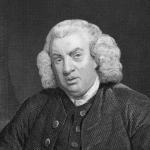When Britain first, at heaven's command,
Arose from out the azure main,
This was the charter of the land,
And guardian angels sung this strain—
"Rule, Britannia, rule the waves;
Britons never will be slaves."
The nations, not so blest as thee,
Must in their turns to tyrants fall;
While thou shalt flourish great and free,
The dread and envy of them all.
"Rule, Britannia, rule the waves;
Britons never will be slaves."
Still more majestic shalt thou rise,
More dreadful from each foreign stroke;
As the loud blast that tears the skies
Serves but to root thy native oak.
"Rule, Britannia, rule the waves;
Britons never will be slaves."
Thee haughty tyrants ne'er shall tame;
All their attempts to bend thee down,
Will but arouse thy generous flame,
But work their woe and thy renown.
"Rule, Britannia, rule the waves;
Britons never will be slaves."
To thee belongs the rural reign;
Thy cities shall with commerce shine;
All thine shall be the subject main,
And every shore it circles thine.
"Rule, Britannia, rule the waves;
Britons never will be slaves."
The Muses, still with freedom found,
Shall to thy happy coast repair:
Blest isle! with matchless beauty crowned,
And manly hearts to guard the fair.
"Rule, Britannia, rule the waves;
Britons never will be slaves."















Comment form: